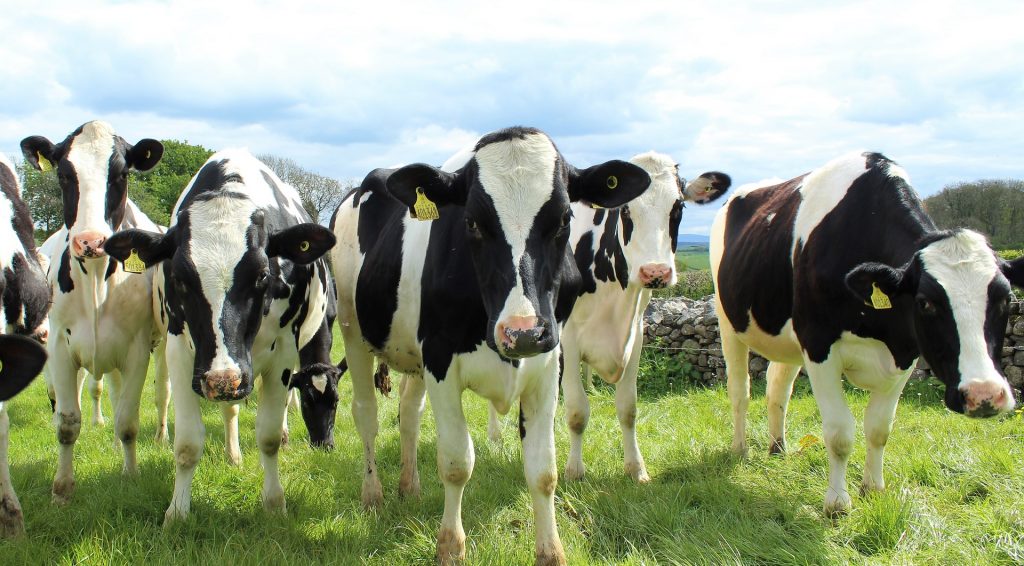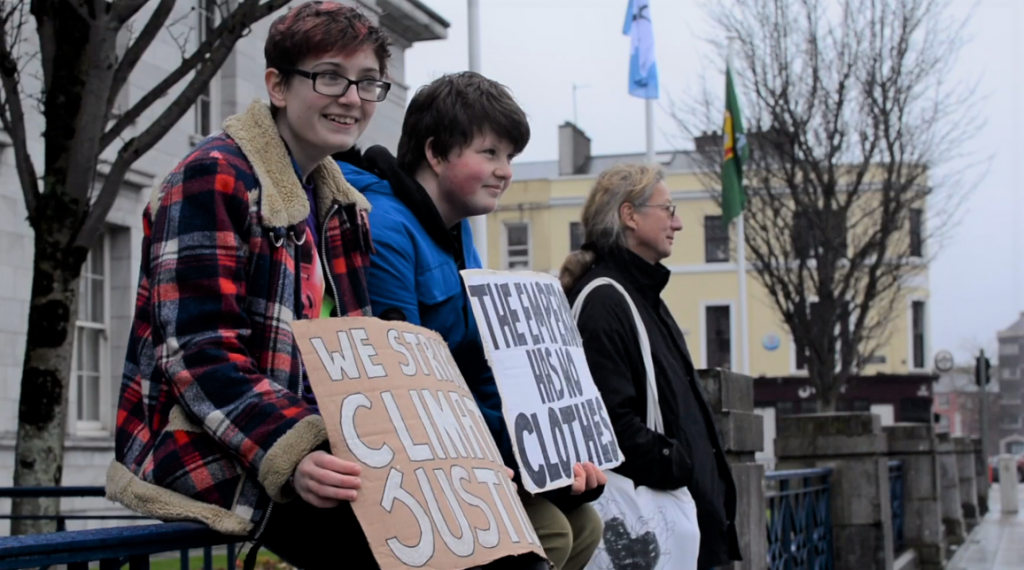Greens critical of Teagasc talk at ‘climate sceptic’ event

March 13th, 2019
The leader of the Green Party has criticised Teagasc’s decision to speak at a seminar this evening that he says is run by the “main centre for climate scepticism” in Ireland.
Speaking to The Green News today, Eamon Ryan questioned why the
agriculture State agency is scheduled to attend the latest event in the Irish Climate Science Forum’s (ICSF) lecture series that to date, he says, have been “clearly designed to call into question climate science”.
Teagasc’s head of economics and farm surveys, Trevor Donnellan, is set to speak at the event at the Sandymount Hotel in Co Dublin tonight to outline the agency’s research findings on options to reduce emissions from the agricultural sector.
The ICSF says on its website that it’s members are “convinced that climate science is not yet settled” and that they are “driven by the imperative of objectivity without any vested interests”.
The forum has held nine lectures since it was founded in 2016, with many guest speakers courting controversy over their view on climate change and possible links to the fossil fuel industry, including one of its
In 2015, for example, an undercover investigation by Unearthed revealed that Prof Happer agreed to write a report for a fictional oil company on the benefits of CO2 and allow the firm to keep the funding source secret.
Prof Happer’s talk at the ICSF event in June 2017 was on the topic of Irish Agriculture – A New Look at the Influences of Methane, Nitrous Oxide and Carbon Dioxide. A copy of his presentation released to The Green News under Access to Information on the Environment (AIE) regulations includes slides emphasising CO2’s role as a fertiliser or food source for plants.
A policy briefing document prepared by the forum and sent to the Oireachtas Joint Committee on Climate Action last month expanded on ideas in Prof Happer’s presentation, with the ICSF finding that “far from being the ‘villain’”, increasing CO2 levels are “beneficial to [the]
“It is little appreciated that the increasing CO2 level is actually beneficial to the greening through photosynthesis of the planet, and therefore may be beneficial to feeding the global population as it heads towards nine to 10 billion,” the document states.

Inappropriate venue for Teagasc
For the above reasons, Mr Ryan questioned Teagasc’s attendance at the ICSF event at a time when we need to be fully focused on bringing down our agricultural emissions and working to tackle climate change.
Agricultural emissions currently account for one-third of Ireland’s total emissions – over three times the European average – and are expected to increase over the coming decade largely owing to the increase in the dairy herd in line with State agri-export targets.
“The emissions are again rising steadily each year, our imports of fertilisers are increasing, the output of slurry is an increasing problem, I could go on,” Mr Ryan told The Green News.
“Agriculture can’t get a pass on climate and everyone now can see that, and Teagasc are centrally involved in some of the solutions,” he added.
He said, however, that the research body’s attendance at tonight’s event is “calling into question Teagasc’s commitment” to fulfil its central role in helping to bring about the necessary changes to bring down our agricultural emissions.
In a statement, Teagasc said that the ICSF has asked it to outline mitigation options identified through its research that could reduce greenhouse gas and ammonia emissions from Irish agriculture.
Since publishing its latest analysis last year on the emissions reduction potential in Irish agriculture over the next decade, Teagasc has presented this material to “multiple audiences, groups and organisations”.
“This is another such opportunity to outline which measures, if adopted, have a role to play in reducing Ireland’s emissions from the land-use sectors,” the statement reads.
While agreeing that public bodies should be open to engaging with people of diverse views, Mr Ryan said that the ICSF’s talks are “designed to undermine climate science… [and that] is not being open to enquiry and listening to different views”.
“That’s being part of a campaign that is designed to call climate science into question and that’s why it’s not an appropriate venue [for Teagasc to present],” he said.
“These series of meetings have been the main centre for climate scepticism and while everyone is free to attend and to speak, it’s when some people are there presenting organisations – Teagasc in this case – the alarm bells are ringing,” Mr Ryan said.
The Green News contacted the ICSF on several occasions last week for comment but did not receive a statement at the time of publication.

‘Convinced’ science is not settled
Prominent ICSF member and University College Dublin (UCD) adjunct professor Ray Bates recently questioned the scientific merits of the latest Intergovernmental Panel on Climate Change (IPCC) report in an opinion article in The Irish Farmers’ Journal (IFJ).
In his IFJ article, Prof Bates also said that, if we are faced with a long-term climate threat rather than an immediate planetary emergency, then “vital national interests” such as our export-driven agri-food industry “may legitimately be taken into account” in terms of how we respond to climate change.
The former head of research at Met Éireann also released a paper through the Global Warming Policy Foundation (GWPF) expanding on his criticism of the IPCC’s report that found rapid and unprecedented policy change is required across all sectors to limit temperature increases to the 1.5°C threshold.
Prof Bates paper was in turn heavily criticised by Professor Peter Thorne, a Maynooth University climatologist and an IPCC lead author, and Gavin Schmidt, the Director of the NASA Goddard Institute for Space Studies.
For several years, Prof Bates has spoken out in favour of largely shielding the agricultural section from major policy changes in light of his view that we are not facing a planetary emergency.
“It is our government’s national duty to do its utmost to maintain Ireland’s position as a low-emissions food producer and exporter – a vital matter of national interest, but also in the interests of EU and world food security,” he wrote in an opinion piece in The Irish Times in 2015.
Mr Ryan, however, said that this is a flawed idea as we are already seeing the impacts of climate change, including extreme weather that is impacting Irish farmers such as last year’s severe drought.
“Anyone who’s just thinking we can fight a rear-guard action where we ignore the reality of climate change, where we defend an agricultural system that isn’t really serving Irish farmers, I think has their head in the sand,” Mr Ryan said.

Invite-Only Event
A reporter from The Green News was denied media access to tonight’s seminar by the organisers because of what the group described as “unjustified FOI requests on our esteemed colleague Prof Ray Bates”.
The Green News has sent
The Green News and other media groups have previously been denied access to ICSF seminars as the organisers said that the events are invite-only and are not open to the media.
Tony Lowes of Friends of the Irish Environment,an NGO currently challenging State climate policy in the courts, said that the ICSF is “notorious” for its “behind-closed-doors” meetings that have “offered a platform to a series of climate change sceptics over the past few years”.
That is why it is so “shocking” to see Teagasc give ICSF the “oxygen of respectability it so clearly does not deserve”, Mr Lowes said, especially at a time when the group’s views are at odds with the IPCC’s findings.
“At a time when the young people of Ireland are rising up to call for urgent climate action with their climate strike on Friday, the lack of urgency advocated by this forum of largely middle-aged and elderly men flies in the face of the clear scientific advice of the Nobel prize-winning IPCC,” Mr Lowes added.
[x_author title=”About the Author”]







